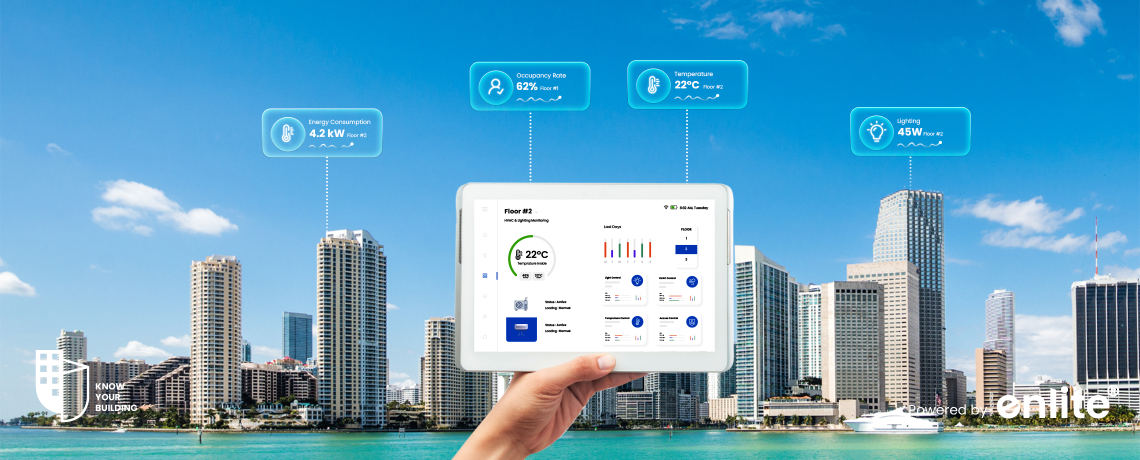Table of Contents
ToggleThe future of commercial real estate is smart, sustainable, and increasingly driven by climate tech. Smart buildings, enhanced with the latest technologies such as the Internet of Things (IoT) and Artificial Intelligence (AI), are designed to optimize energy usage, reduce carbon emissions, and create healthier indoor environments. As concerns about environmental sustainability continue to grow, the real estate sector is turning to climate tech solutions to build smarter, greener buildings. This blog explores how climate tech is shaping the future of smart buildings and driving sustainable development in commercial real estate.
Core Features of Smart Buildings
Smart buildings are intelligent structures equipped with interconnected systems that leverage IoT, automation, and AI to optimize performance. These technologies work together to ensure that buildings operate at peak efficiency while minimizing their environmental impact.
Integration of IoT and Automation
Smart buildings rely heavily on IoT devices to monitor various building functions, from lighting to HVAC systems. Sensors continuously gather data, allowing for real-time adjustments to optimize energy consumption and improve building performance. Automation systems can adjust lighting, heating, and cooling based on occupancy and time of day, significantly reducing waste.
Real-Time Data Collection and Analytics
One of the most valuable features of smart buildings is the ability to collect and analyze real-time data. This data is used to monitor energy use, track resource consumption, and predict maintenance needs, all of which contribute to a building’s efficiency. Advanced analytics can identify patterns and suggest ways to optimize operations further.
Smart Energy Management Systems
Energy management is a key focus of smart buildings. These systems monitor energy usage throughout the building, optimize energy consumption, and integrate with renewable energy sources. By analyzing energy data, building managers can identify inefficiencies and reduce overall energy use, lowering the building’s carbon footprint.
How Climate Tech Drives Sustainable Development in Smart Buildings
Climate tech plays an essential role in ensuring that smart buildings meet sustainability goals. By focusing on energy, water, and resource optimization, climate tech helps reduce the environmental impact of commercial real estate.
Reducing Carbon Emissions with Energy Optimization
One of the main challenges in commercial real estate is reducing carbon emissions from building operations. Climate tech companies offer solutions such as advanced energy management systems that optimize energy consumption in real-time, automatically adjusting settings to reduce energy waste and lower carbon footprints.
Water Conservation and Waste Management Solutions
Smart buildings equipped with climate tech also focus on water conservation. IoT-enabled water monitoring systems detect leaks, optimize water usage, and track consumption patterns to prevent waste. Additionally, smart waste management systems ensure that waste is minimized and properly sorted for recycling, contributing to a circular economy.
Enhancing Indoor Environmental Quality
Climate tech can improve indoor environmental quality by monitoring air quality, temperature, and humidity levels. Smart ventilation systems ensure optimal air quality while using energy efficiently. This not only enhances occupant comfort but also supports sustainability by reducing unnecessary energy consumption.
The Role of Renewable Energy in Smart Buildings
Smart buildings are increasingly integrating renewable energy sources to further reduce their environmental impact.
Solar and Wind Energy Integration
Many smart buildings are equipped with solar panels or wind turbines to generate clean, renewable energy. These renewable sources are integrated with the building’s energy management systems, allowing for seamless transitions between grid power and renewable energy, reducing dependency on traditional energy sources.
Energy Storage Solutions for Sustainability
In addition to generating renewable energy, smart buildings are adopting energy storage solutions such as battery systems to store excess energy generated by solar or wind power. This stored energy can be used during peak hours or when renewable energy production is low, further reducing reliance on the grid and enhancing sustainability.
Challenges in the Adoption of Smart Building Technologies
While the benefits of smart buildings are clear, there are challenges in adopting these technologies.
High Initial Investment and ROI Concerns
One of the main challenges is the high upfront cost of implementing smart building technologies. Although these systems provide long-term savings, the initial investment can be prohibitive for some developers. However, the return on investment (ROI) typically comes in the form of lower energy bills, reduced maintenance costs, and higher building valuations.
Data Security and Privacy in Smart Buildings
With the proliferation of IoT devices and real-time data collection, smart buildings also face challenges related to data security and privacy. Building owners and operators must ensure that the data collected from these systems is protected from cyber threats and complies with privacy regulations.
The Economic and Environmental Benefits of Smart Buildings
The long-term benefits of smart buildings are both economic and environmental, making them a valuable investment for commercial real estate developers.
Energy Savings and Cost Reductions
By optimizing energy use, smart buildings reduce energy consumption, leading to significant cost savings. These buildings also require less maintenance thanks to predictive maintenance systems, further lowering operational costs over time.
Green Certifications and Attracting Eco-Conscious Tenants
Smart buildings are better positioned to earn green certifications such as LEED or BREEAM, enhancing their marketability. Eco-conscious tenants and investors are increasingly looking for properties that align with their sustainability values, making smart buildings an attractive option.
The Future Outlook for Smart Buildings and Climate Tech
The future of smart buildings is closely tied to advancements in climate tech. AI will play an even more prominent role in optimizing building operations, with systems becoming more autonomous and efficient. Additionally, the integration of 5G technology will allow for even greater connectivity between IoT devices, further enhancing building performance.
Smart buildings represent the future of commercial real estate, offering a sustainable, efficient, and environmentally friendly solution to the challenges of climate change. By leveraging climate tech, these buildings can reduce their carbon footprint, optimize resource use, and create healthier spaces for occupants. As the adoption of smart building technology grows, we can expect a greener, more sustainable future for the built environment.














